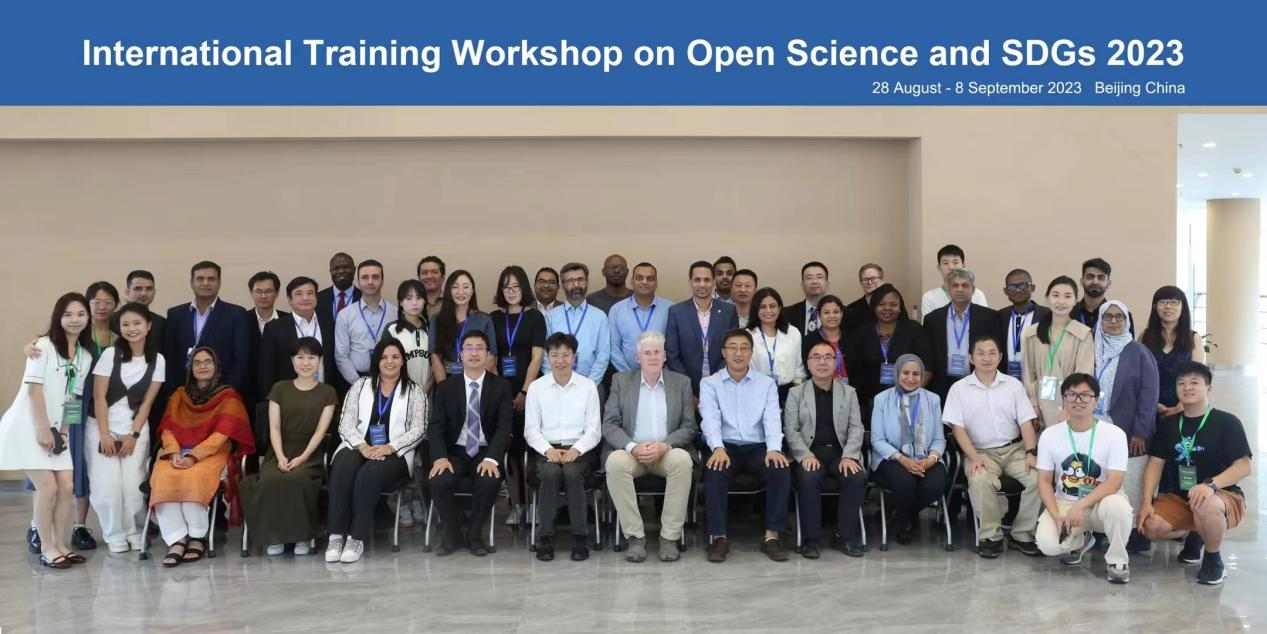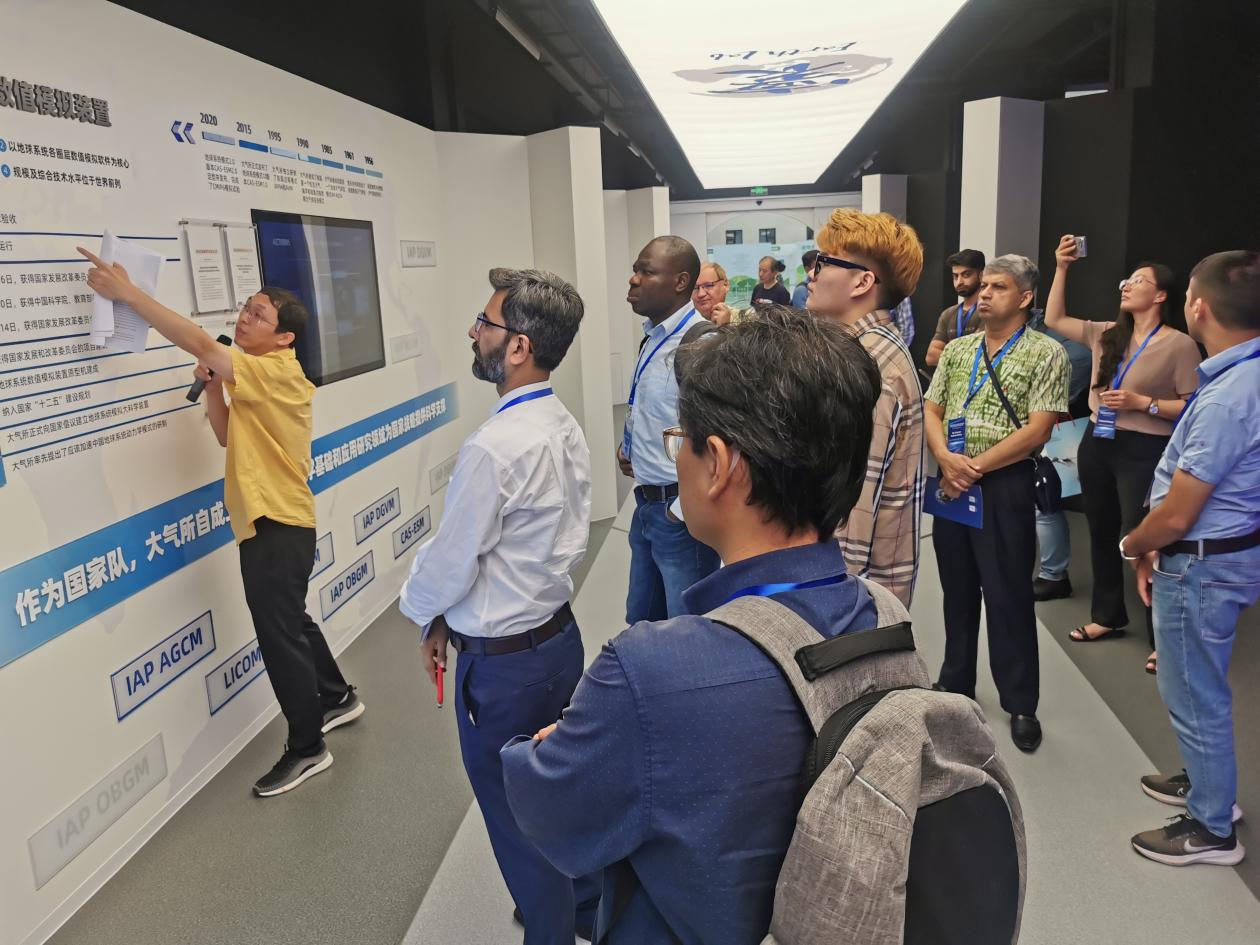August 28 to September 8, 2023, the 2023 International Training Workshop on Open Science and SDGs was successfully held in Beijing. It was co-organized by GOSC International Programme Office, ICCES and other organizations. The Chinese Academy of Sciences, the International Data Committee, the World Federation of Engineering Organizations Disaster Risk Management Committee, and other institutions supported this workshop.
The two-week training course covers open science macro policy, open science infrastructure platform, computer and data science technology applications, open science data resources and interoperability, SDGs data resources and application technologies, and global typical application demonstrations. The training course provides knowledge and skills training in open science and Sustainable Development Goal research for scientists and technicians from developing countries. After online application and recommendation process, a total of 28 trainees were invited, they are researchers and scholars from Mongolia, Vietnam, India, Pakistan, Malaysia, Indonesia, Iran, Morocco, Nepal, Sri Lanka, Egypt, Malawi, Nigeria, Kenya and other developing countries, as well as representatives from Germany, the United States, two tutors from CODATA also joined the workshop. The workshop comprised three themes "Achieving Inclusive and open Science and the Sustainable Development Goals: Policy and Governance", "Promoting data resources and tools for Open Science and the Sustainable Development Goals", and "Best practices for achieving the United Nations Sustainable Development Goals", the training course held 27 lectures on open science policy, SDGs data resources, and technology applications. It also organized group discussions, site visits and other diversified training activities.
In the workshop, Prof. Zhaohui LIN, director of ICCES, present a lecture entitled " The Earth System Science Numerical Simulator Facility and its application in Climate Research", he systematically told the participants about the system composition of China's first Earth System Science Numerical Simulator Facility and its application in the fields of climate change, ecological environment construction, disaster prevention and reduction. Dr. Victor Dike, Associate professor in ICCES, gave a presentation on "Climate Change in Africa and Possible Solutions", he presented research findings on extreme weather events in the African region. On September 2, the workshop organized participants to visit The Earth System Science Numerical Simulator Facility (Earthlab) that located in IAP Miyun campus. Professor He ZHANG from ICCES introduced Earthlab to the trainees. Prof.He ZHANG pointed out that the facility is a major science and technology infrastructure construction project deployed by the China Development and Reform Commission during the 12th Five-Year Plan period. It includes Earth system model numerical simulation system, regional high-precision environmental simulation system, super simulation support and management system, supporting database and data assimilation and visualization system, high performance computing system for earth science, civil engineering and related supporting facilities. Earthlab is a special Earth system numerical simulation device with deep integration of hardware and software, and has become an important basic research platform for atmosphere, ocean, environment, and computing science.
The training course improved the ability of researchers from developing countries in the fields of open science and sustainable development goals. Participants said that through the training, they have learned theoretical knowledge, expanded the analytical thinking of scientific research and practice, acquired skills and methods which are beneficial to their future research.

Opening ceremony

Prof. Zhaohui LIN gave presentation

Trainees visited Earthlab

Prof. Zhang made introduction to trainees